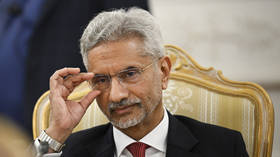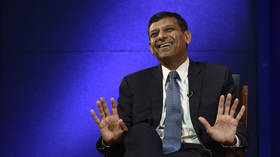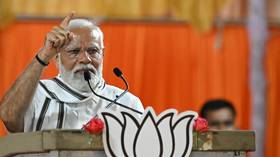Delhi’s Chief Minister is in jail: How an anti-corruption accuser himself became the accused
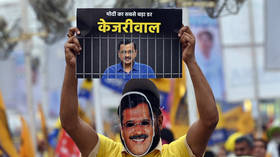
An Indian court earlier this week remanded Arvind Kejriwal, the chief minister of Delhi and the leader of the opposition Aam Aadmi Party (AAP, Common Man Party), to judicial custody until April 15. Kejriwal was arrested by the Enforcement Directorate (ED), an agency that investigates revenue-related crimes, on March 21. He spent ten days in ED custody before being sent to Tihar Jail on April 1.
The ED says he skipped nine summonses for questioning in a bribery case related to changes in the Delhi Excise Policy governing liquor sales.
Though Kejriwal – the acting chief minister of India’s capital, which has the special status of union territory and has its own legislative assembly and elected government – is now in a high-security jail, he is someone that has been spoken about as a future prime minister, mostly by his own party and on social media campaigns that have gone viral. He himself, however, has said he is not a 2024 candidate for prime minister.
Even those who oppose the AAP talk about the open secret of Kejriwal’s prime ministerial ambitions, and say that if it happens, he will only continue India’s right-of-center politics. Supporters of the Congress, India’s grand old party which is now in opposition, and of left-of-center regional parties have occasionally branded Kejriwal and his politics as “soft Hindutva” (which refers to Hindu nationalism) – given that he and his party kept quiet about the Delhi riots of February 2020, or over various lynching incidents in which Muslims are the victims.
Incidentally, the only other person spoken about as a future prime minister in Indian political circles is Yogi Adityanath, who rules the country’s most populous state, Uttar Pradesh, and who is seen as “harder Hindutva.”
If a man sitting in India’s highest-profile jail ever does reach the political pinnacle of prime minister, it will have been quite the journey for Kejriwal, who comes from middle-class beginnings, has epitomized the middle-class dream, and who frequently adopts middle-class symbolism – a muffler covering his head during his early years as CM, and favoring trousers over the conventional white kurta-pajama – in his rise.
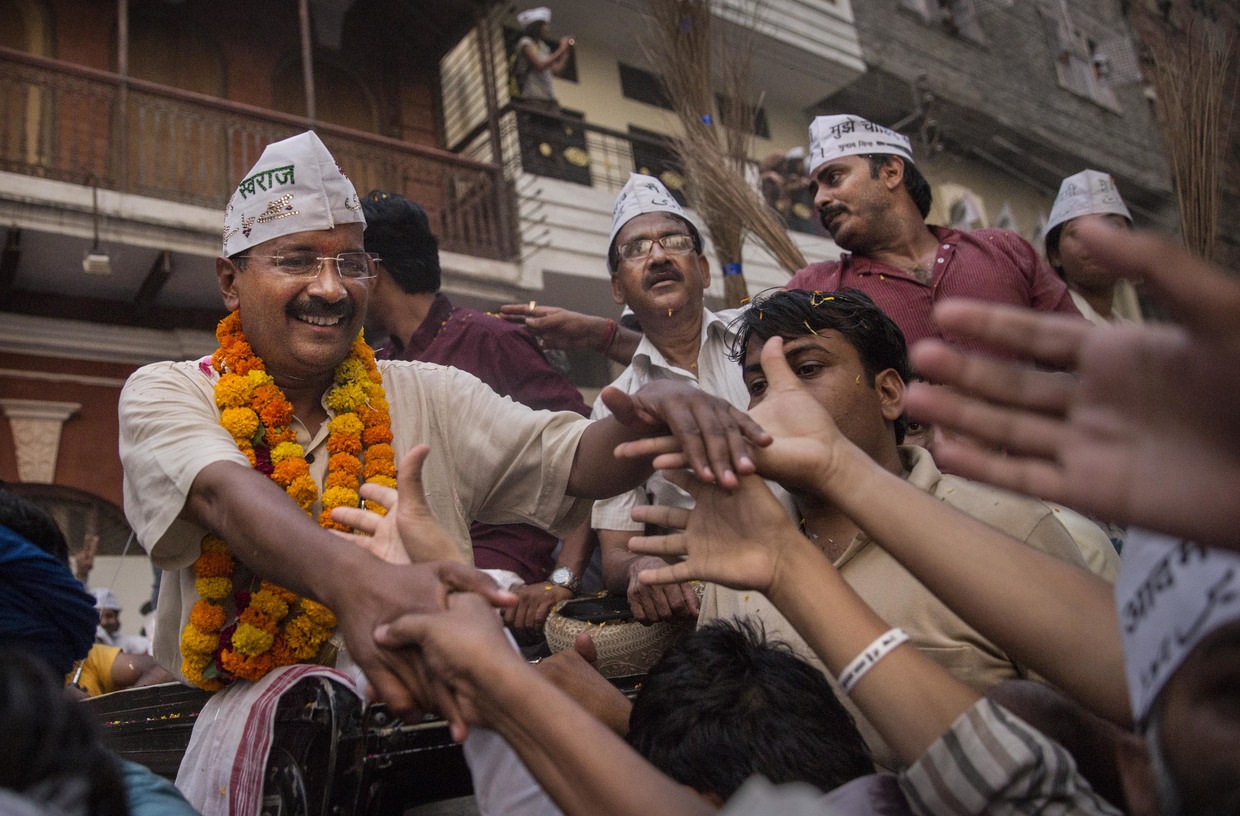
From bureaucrat to politician
Born in 1968 to an upper caste family in northern India’s Haryana, Kejriwal was a diligent student, and successfully aced the ultra-competitive entrance exams to the Indian Institute of Technology, which has produced many luminaries of the IT world.
Qualified as a mechanical engineer for India’s then-largest private concern, he began preparing for the civil services exam – the most competitive exam that the Indian middle-class most aspires to – and in 1995, he joined the Indian Revenue Service (IRS) as an assistant commissioner of Income Tax under the Finance Ministry.
Ironically, it was IRS officers of the same ministry who arrested him in 2024 over allegations of bribery that have remained not only undocumented and unproven, but based on hearsay – by people who subsequently joined the ruling Bharatiya Janata Party (BJP). More on this later.
As an income tax official, what Kejriwal saw of the system shocked him, because a few years later – while still in service – he started a movement (along with journalist Manish Sisodia, who would later become deputy CM of Delhi) called ‘Parivartan’ (Change), which demanded transparency in the workings of the income tax department. It also addressed public grievances in various welfare schemes.
Kejriwal used several mechanisms, such as the Right to Information Act (enacted by the Delhi Congress government) to fight corruption that the average person faced, most commonly in the electricity departments, and to prevent the privatization of water in the capital city.
Kejriwal thus became known as an anti-corruption crusader. He resigned his government job in 2006, and was given the Ramon Magsaysay award for integrity in governance and service to people. He used the prize money to start the Public Cause Research Foundation, an institutional foundation for his anti-corruption work.
Prominent among his efforts was a campaign against corruption in the organizing of the Commonwealth Games of 2010, which became etched in the public mind after a bridge-roof collapse at the Jawaharlal Nehru stadium due to shoddy work. Then-CM Sheila Dixit was beleaguered by allegations of corruption against her government, and it led to her losing power a few years later.
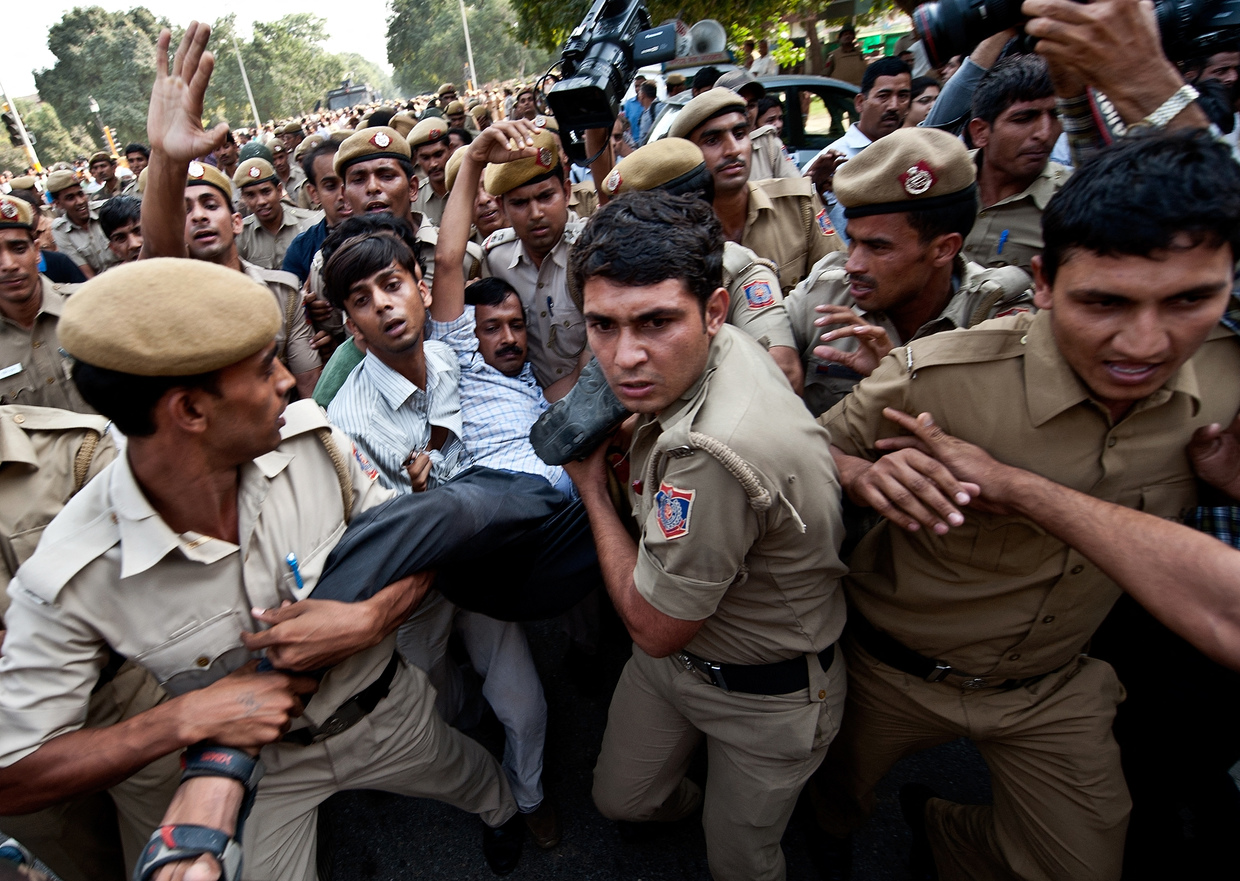
A loner becomes a leader
In 2011, he joined with like-minded anti-corruption activists, such as eminent lawyer Prashant Bhushan, former police officer Kiran Bedi, and grassroots organizer Anna Hazare, to form India Against Corruption (IAC), and their main demand of Prime Minister Manmohan Singh was the enactment of the Jan Lokpal Bill – to have a public ombudsman look into allegations of corruption (rather than a government-controlled agency like the Central Bureau of Investigation).
Coinciding with protests over the ghastly rape-murder of a medical student in Delhi, the IAC protests gained momentum and large crowds, marking a low point for PM Singh, who had to promise to put forward the Jan Lokpal Bill in parliament.
There were people who were not convinced by the IAC movement. Booker Prize winner Arundhati Roy accused Kejriwal of funding his movement with money from the Ford Foundation, which the latter denied. She and others also claimed the IAC was run by the BJP’s parent outfit, the Rashtriya Swayamsevak Sangh, whose larger goal was to dislodge the Congress using the anti-corruption campaign.
Incidentally, after the 2011 movement ended, some IAC members such as Kiran Bedi joined the BJP; natural remedies baron Baba Ramdev became a prominent supporter of the BJP; and Anna Hazare was silent on allegations of corruption during the next dozen years – waking up briefly only after Kejriwal’s arrest.
Kejriwal continued the Lokpal Bill protest in 2012, as the government backtracked on its promise. And then he launched a political party – the AAP.
The next year, Delhi legislative elections were held, and the AAP won enough seats to form a minority government. Kejriwal, who had contested Sheila Dixit in her constituency, defeated her. He was elected CM by his party.
But the minority government lasted only a year, and when elections were held in 2015, the AAP won a stunning 67 out of 70 seats. His has been a popular government on several fronts: He set up mohalla clinics (primary health centers) through the city; he gave a facelift to government schools, much to the relief of middle-class parents who could not afford private schools; he made electricity free up to a certain limit of consumption, on the condition that even slum-dwellers get meters installed instead of illegally tapping overhead wires; and his administration was the first to allow women free transport on government buses.
No wonder that when elections were held in 2020, the AAP repeated its sweep by winning 62 out of 70 seats.
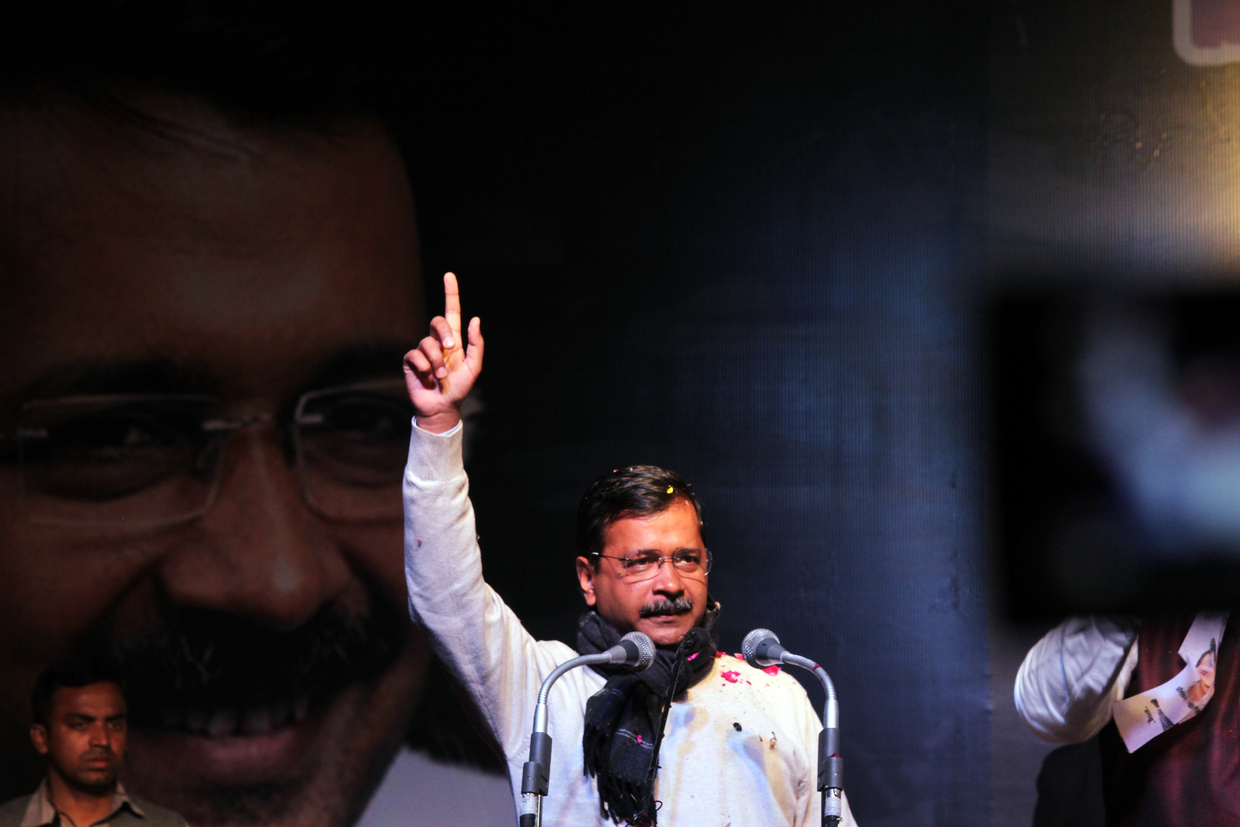
The road to prison
For traditional Delhi politics, the AAP was an upstart; the Congress and the BJP had always dominated the city’s political landscape until Kejriwal landed on the scene. Since then, with the BJP ruling the central government in Delhi, it is no wonder that all their political aggression is directed towards Kejriwal and not the Congress.
Kejriwal has had a running dispute over the division of power with the lieutenant-governor of Delhi, appointed by the central government (a holdover from when Delhi was not a state but directly run by the central government’s Home Ministry). The Delhi police are under the Home Ministry, so the AAP government is powerless in all law-and-order matters. Plus, the police have likely been deployed against AAP workers more times than against other opposition workers.
Things came to a head when the ED filed a corruption case against the former anti-corruption activist. It related to the Delhi Excise Policy, which was changed in 2021; previously all liquor shops were run by the state government, but they were not well-spread geographically, and high prices resulted in consumers buying liquor from Haryana. The government decided to privatize the liquor trade and tax it.
The ED’s case is that the government favored private players from some southern Indian states in return for bribes, some of which were then used by the AAP for the Goa state elections. There has not been any documentary evidence to support it; the case rests on the testimony of former aides and traders from the south – who later either joined the BJP or bought electoral bonds favoring the BJP.
Yet, Kejriwal has not been granted bail. This is because the Prevention of Money Laundering Act was amended in 2018, making bail possible only if the judge is satisfied with the claims of innocence by the accused – something that could procedurally happen only when the trial/case is over. The BJP told parliament that the amendment was necessary to make bail difficult for terrorists.
2024 Elections
The arrest after the announcement of the 2024 parliamentary will no doubt result in the absence of Kejriwal during the campaign – and as the AAP is part of the opposition INDIA (Indian National Development Inclusive Alliance), he was expected to campaign not just in Delhi. The AAP won the state election in Punjab in 2022, and he was expected to help out with CM Bhagwant Singh’s campaign. Plus, the AAP has candidates in Gujarat, among other places.
The general election in India will run from April 19 to June 1 and is called “the largest democratic exercise in history,” as it will see 970 million people casting their votes. The results will be declared on June 4.
If Kejriwal’s absence is felt, it is because of a missing second rung of leadership that could have taken up the slack. Kejriwal has often been accused of driving potential rivals from the party, like Bhushan and political scientist Yogendra Yadav. Even Punjab CM Mann takes a backseat to Kejriwal.
It remains to be seen whether his absence from campaigning is prolonged, given how the ED allowed AAP parliamentarian Sanjay Singh to be released on bail, under questioning from the Supreme Court. June 4, when results are announced, will tell whether or not the move against Kejriwal was ill-advised.
The statements, views and opinions expressed in this column are solely those of the author and do not necessarily represent those of RT.
